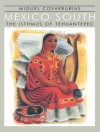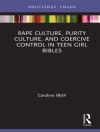Examines key contemporary accounts of the civil war and a range of subsequent texts to reveal the ideas behind the conflict and how these frame the understandings of what took place and what it means for contemporary Nigeria.
The Nigeria-Biafra War lasted from 6 July 1966 to 15 January 1970, during which time the post-colonial Nigerian state fought to bring the South-Eastern region, which had seceded as the State or Republic of Biafra, back into the newly independent but ideologically divided nation. This volume discusses the trends and methodologies in the civil war writings, both fictional and non-fictional, and is the first to analyse in detail the intellectual and historical circumstances that helped to shape these often contentious texts.
The recent high-profile fictional account by Chimamanda Ngozi Adichie in
Half of a Yellow Sun was preceded by works by Ken Saro-Wiwa, Elechi Amadi, Kole Omotoso, Wole Soyinka, Flora Nwapa, Buchi Emecheta, Chukwuemeka Ike and Chris Abani, all of which strongly convey the horrific human cost of the war on individuals and their communities. The non-fictional accounts, including Chinua Achebe’s last work
There Was a Country, are biographies, personal accounts and essays on the causes and course of the war, its humanitarian crises and the collaboration of foreign nations. The contributors examine writers’ and protagonists’ use of contemporary published texts as a means of continued resistance and justification of the war, the problems of objectivity encountered in memoirs, and how authors’ backgrounds and sources determine thekinds of biases that influenced their interpretations, including the gendered divisions in Nigeria-Biafra War scholarship and sources. By initiating a dialogue on the civil war literature, this volume engages a much-needed discourse on the problems confronting a culturally diverse post-war Nigeria.
Toyin Falola is the Jacob and Frances Sanger Mossiker Chair in the Humanities and University Distinguished Teaching Professor at the University of Texas at Austin; Ogechukwu Ezekwem is a Ph D student in the Department of History, University of Texas at Austin.
Innehållsförteckning
Scholarly Trends, Issues, and Themes: Introduction PART I ON THE HISTORY OF THE NIGERIA-BIAFRA WAR – Toyin Falola
Scholarly Trends, Issues, and Themes: Introduction PART I ON THE HISTORY OF THE NIGERIA-BIAFRA WAR – Ogechukwu Ezekwem
Background to the Nigerian Civil War – G.N. Uzoigwe
Connecting Theory with Reality: Understanding the Causes of the Nigeria-Biafra War – Ogechi E. Anyanwu
The Ahiara Declaration and the Fate of Biafra in a Postcolonial/Bi-Polar World Order – Raphael Chijioke Njoku
The Ahiara Declaration: Polemics and Politics PART II CRITICAL DEBATES ON THE NIGERIAN CRISIS – Austine Okwu
Beyond the Blame-Game: Theorizing the Nigeria-Biafra War – Bukola Oyeniyi
Confronting the Challenges of Nationhood in Pre-Biafra Texts: Newspaper Narratives on the Eve of War – Wale Adebanwi
Literary Separatism: Ethnic Balkanization in Nigeria-Biafra War Literature – Akachi Odoemene
Local Writers and Commitments to Ethnic Sentiments Part III THE WAR IN FICTION, MEMOIR & IMAGINATION – Olukunle Ojeleye
Memoirs and the Question of Objectivity: Revisiting Alexander Madiebos’
The Nigerian Revolution & the Biafran War & Robert Colliss’s
Nigeria in Conflict – Christian Chukwuma Opata
’War is War’: Recreating the Dreams and Nightmares of the Nigeria-Biafra War through the Eyes of Ken Saro-Wiwa’s
Sozaboy – Cyril I. Obi
First, There Was a Country, Then There Wasn’t: Reflections on Achebe’s
There was a Country – Biodun Jeyifo
Ethnic Minorities and the Biafran National Imaginary in Chukwuemeka Ike’s
Sunset at Dawnand Chimamanda Ngozi Adichie’s
Half of a Yellow Sun – Meredith Coffey
Biafra in the Irish Imagination: War and Famine in Banville’s
An End to Flight and Forristal’s
Black Man’s Country – Fiona Bateman
Magical Realism or Science Fiction: The Nigerian Civil War and Ali Mazrui’s
The Trial of Christopher Okigbo – Alabi Adetayo
Biafra, an Impractical Mission? Revisiting S.O. Mezu’s
Behind the Rising Sun and I.N.C. Aniebo’s
The Anonymity of Sacrifice
Neo-Colonialism, Biafra and the Causes of War as Imagined in Buchi Emecheta’s Destination Biafra PART IV LOCATING GENDER IN NIGERIA-BIAFRA WAR LITERATURE – Françoise Ugochukwu
No, This is Not Redemption: The Biafra War Legacy in Chris Abani’s Graceland PART IV LOCATING GENDER IN NIGERIA-BIAFRA WAR LITERATURE – Hugh Hodges
Gender and the Construction of the Nigeria-Biafra War Scholarship – Egodi Uchendu
What is the Country? Reimagining National Space in Women’s Writing on the Nigeria-Biafra War – Jane Bryce
Female Participation in War and the Implication of Nationalism: The Postcolonial Disconnection in Buchi Emecheta’s Destination Biafra – Ofure O.M. Aito
Select Bibliography
Om författaren
WALE ADEBANWI is Presidential Penn Compact Professor of Africana Studies, University of Pennsylvania. He is the author of Nation as Grand Narrative: The Nigerian Press and the Politics of Meaning (2016) and editor of The Political Economy of Everyday Life in Africa (2017).












